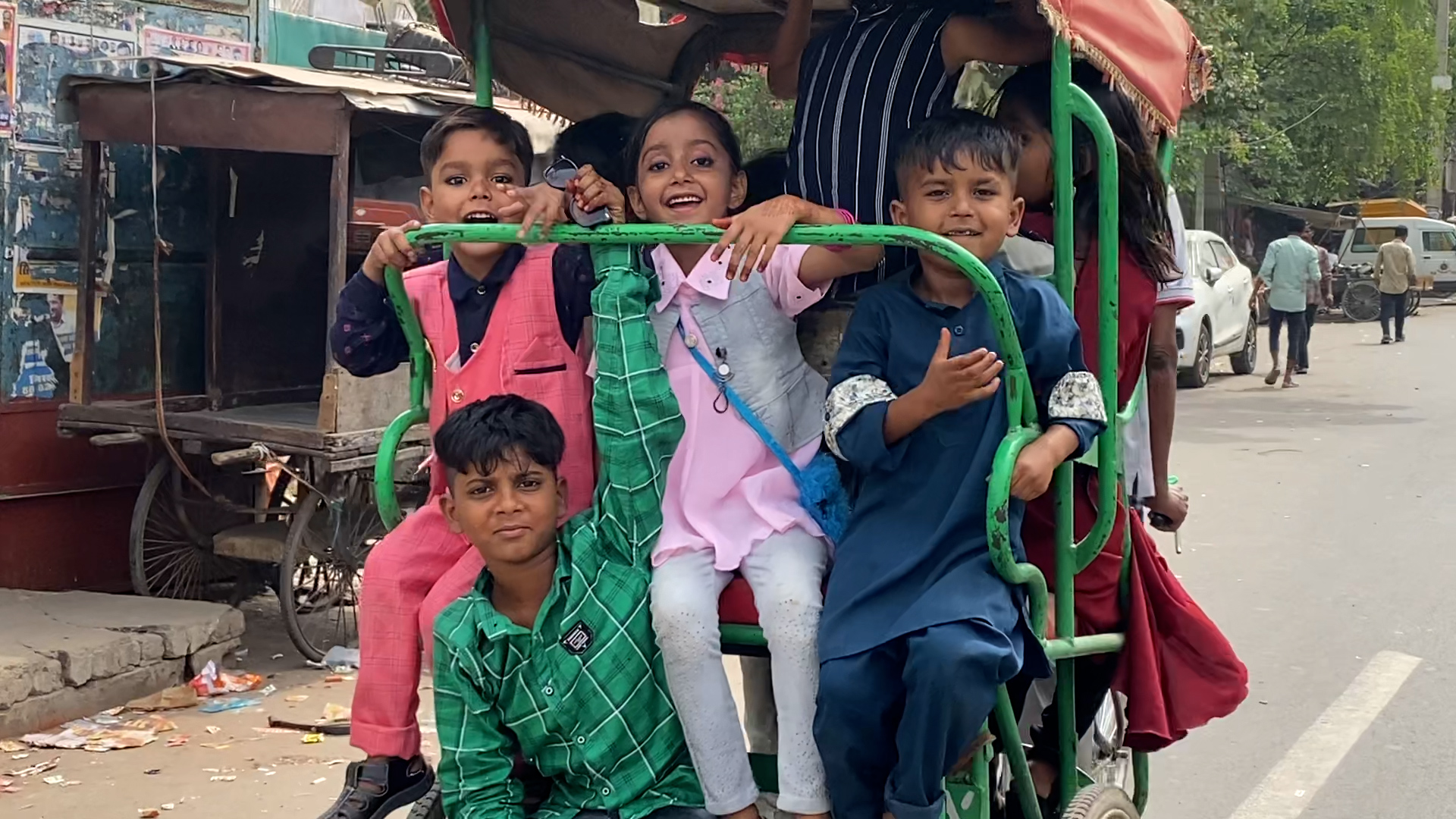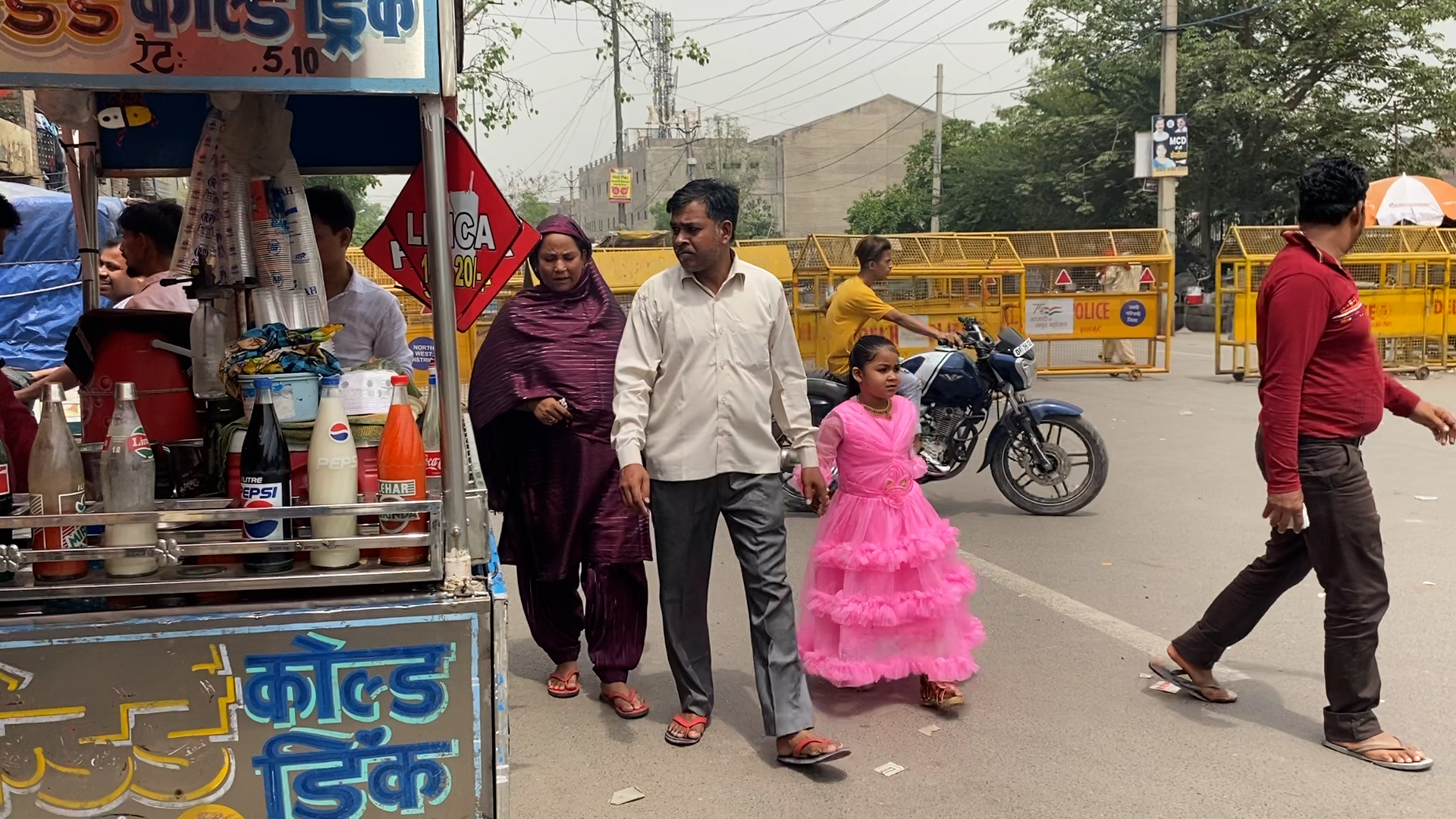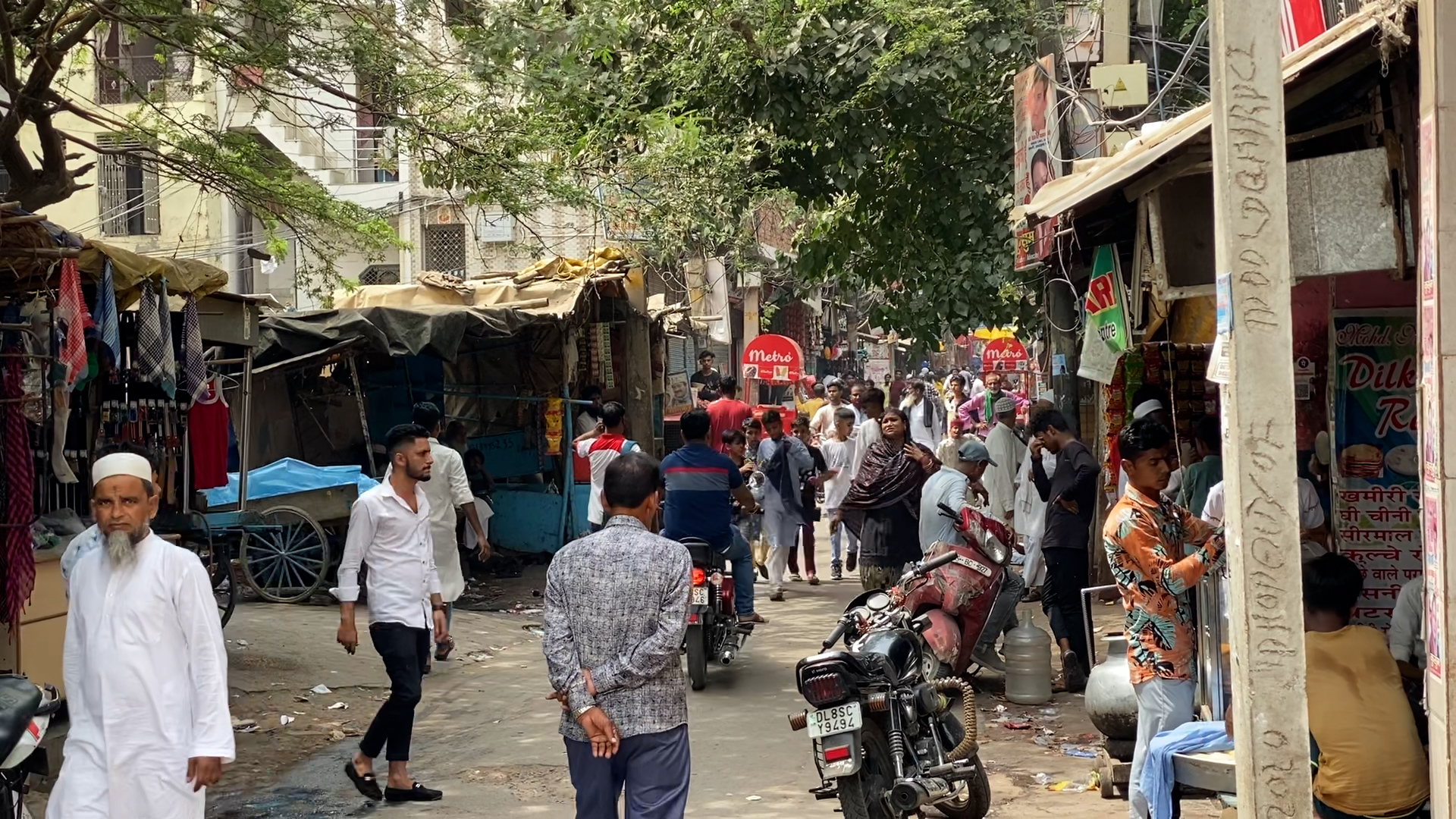NEW DELHI: Abdul Hafiz, a cold drink seller from the Jahangirpuri in Delhi, was at his cheerful best that cloaked his anxieties on poor earnings since the lockdown as Eid al-Fitr brought a ray of hope in the post COVID era.
Standing by his aluminium cabin, the 28-year-old counted his blessings as his profit swells after two years, where his business suffered owing to stringent lockdowns. Hafiz, who has been in the business for the past 20 years and has witnessed several changes in the society, said that one thing remains unchanged – the communal harmony of his area.
Jahangirpuri, the densely populated North West cluster of Delhi, is the address of thousands of Muslims, Hindus and Sikhs who join each other’s religious celebration elatedly. But the harmony of years has been tested when the area witnessed communal violence on April 16 during a Hanuman Jayanti procession.
However, the Eid reignited the hopes of harmony as Muslims joined their brothers and sisters from other faiths to celebrate the festival over the sweetness of seviyan, the signature dish on the occasion.
“We were very upset for the last two years. COVID closed the ways of earning. How will we earn and feed our children? The violence impacted us severely. Hindus, Muslims, Sikhs and Christians used to live together very happily. We are not sure how the violence occurred and changed everything,” Hafiz told The New Indian that visited the area after the Zuhar Namaz was offered from a local masjid.
He said they celebrate the Eid al-Fitr with everyone in the locality, the Hindus and Sikhs not just greet them during celebrations like Eid but also join them.
“Look around. You will see love all around. I just have to ask my Hindu neighbours what they had cooked and they would feed me without any hesitation. And we also share our food with them,” Hafiz said.
The narrow lanes across the blocks of Jahangirpuri wore a festive look with thin lanes filled with people. A swarm of buyers occupied the entrances of the small shops.
“Business is normal, almost similar to the previous time. But C and B blocks, which had witnessed violence recently, are little affected,” Sandeep Kumar Pandey, a grocery shop owner, told The New Indian. “The Hindus and Muslims relish this festivity. We never hesitated to celebrate Eid and eat seviyan. Even at our home, we have received seviyan from our Muslim neighbours. We send sweets to the Muslim neighbours on Diwali as well,” Pandey said.
However, for many small business owners – like from street sellers of foods to sweets to betel leaves – it is a mixed bag of fortune.
“Festivity excites us when work goes well. Lockdown killed our job,” Sunil Garg, an e-vehicle driver, who had been driving rickshaws over the past 10-12 years.
“Now many lack a job. The celebration of Eid is no more like it used to be. Our income is completely affected. If people don’t come to this area much, how will our business grow?” Garg said.
“We and the Hindu community used to live here together but don’t know how it all happened,” Mohammad Irfan, owner of a betel shop in the area, wondered about the recent incident.
“This Eid is completely different. Not just to us, but to everyone. People from Sonipat and Panipat come here to buy our Roti. But yes we suffered a loss due to COVID and whatever happened recently,” Mohammad Nisar, a roti baker, said.
However, Pawan Kumar Soni, a sweet shop owner, is a happy man. “After two years, I found my business is back to the pace. Muslims buy mostly our sweets. We also join in the celebration of Eid. It’s the celebration that brings me money and unites us together,” Soni said, as a matter of fact.











